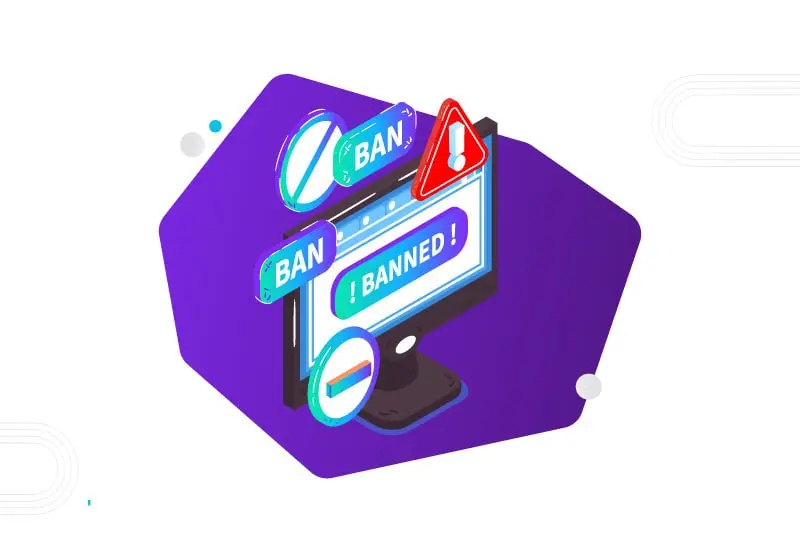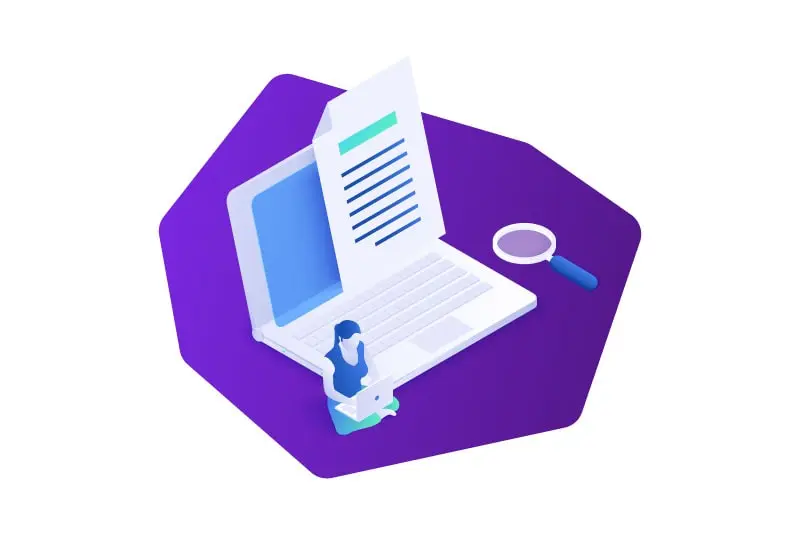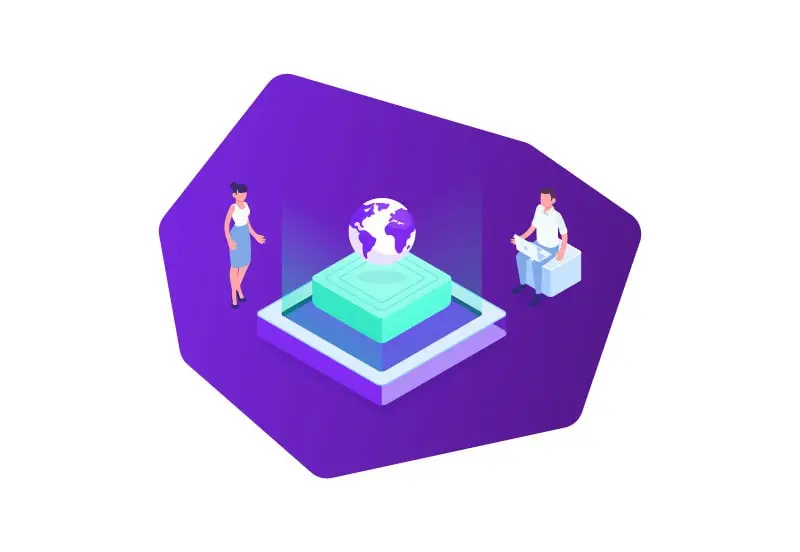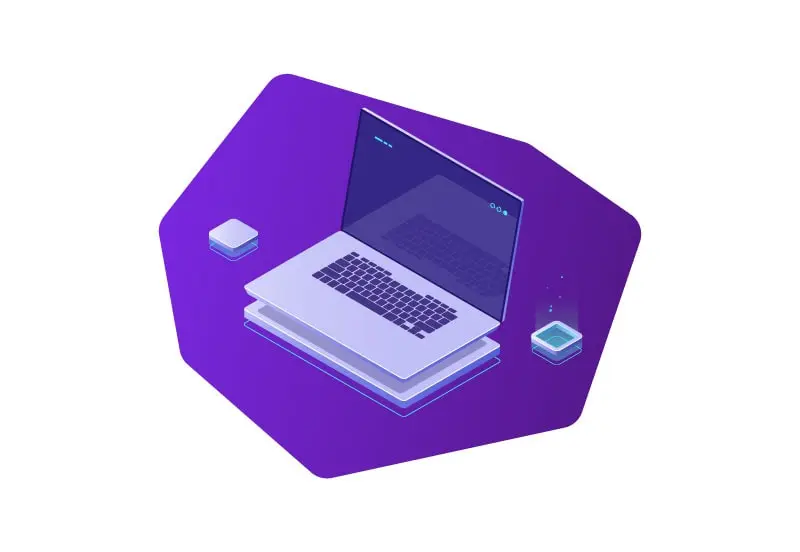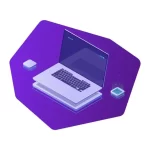Are you tired of getting blocked by websites or search engines while scraping data or conducting market research? Or maybe you want to protect your privacy and avoid being tracked online? Whatever the reason, knowing how to change IP address can be a valuable skill for businesses and web scrapers.
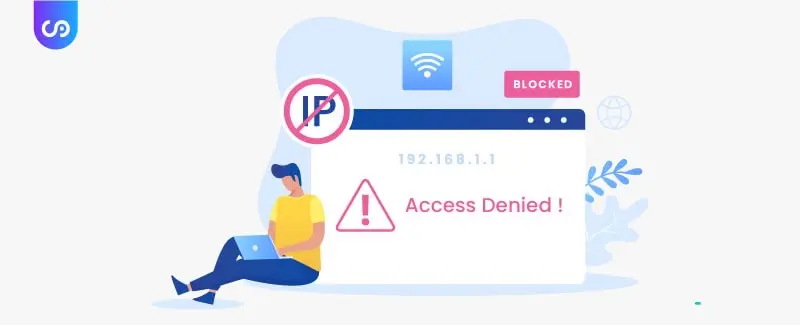
In this article, we’ll explore different methods for changing your IP address, including using proxy servers, VPNs, and Tor. We’ll also introduce you to residential proxies, a powerful tool for businesses and web scrapers that allows you to change your IP address and location without being detected. So, if you want to stay ahead of the game and keep your online activities safe and efficient, read on and learn how to change IP address like a pro!
Why change IP addresses?
The internet can be a wild and unpredictable place. One minute you’re browsing peacefully, the next you’re getting blocked or throttled by a website or search engine. This is where changing your IP address comes in handy. By changing your IP address, you can avoid getting blocked or throttled by websites, and access geographically restricted content from different locations around the world.
But changing your IP address is not just about accessing content. It’s also about protecting your privacy and staying safe online. When you surf the web, your IP address acts like a unique identifier that can be used to track your online activities, such as what websites you visit, what you search for, and what you buy. This information can be used by advertisers, hackers, or government agencies to target you with ads, steal your personal data, or monitor your online behavior.
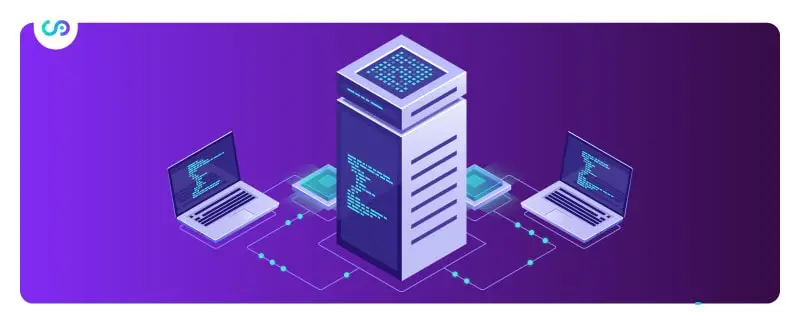
Changing your IP address can help you protect your privacy and stay anonymous online. By using a different IP address, you can mask your true location and identity, and prevent others from tracking or identifying you. This is especially important for businesses and web scrapers who deal with sensitive data or conduct market research. By changing their IP address, they can avoid being detected by competitors or getting their data compromised.
So, whether you want to access geographically-restricted content, protect your privacy, or stay safe online, changing your IP address is a valuable skill that can make your online activities more efficient and secure.
How to change IP address: methods
When it comes to changing your IP address, there are several methods you can use. Each method has its own pros and cons, and the choice depends on your specific needs and preferences. Here are some of the most common methods:
- Using a proxy server: A proxy server is a server that acts as an intermediary between your device and the internet. When you connect to a proxy server, your requests are forwarded to the website or service you’re accessing, and the website or service sees the proxy server’s IP address instead of yours. This allows you to access content that is blocked in your region or avoid getting blocked by a website or service. There are different types of proxy servers, including HTTP proxies, SOCKS proxies, and transparent proxies, and they can be either free or paid. However, using a proxy server can slow down your internet speed, and some websites or services can detect and block proxy traffic.
- Using a VPN: A VPN (virtual private network) is a service that encrypts your internet traffic and routes it through a remote server. When you connect to a VPN server, your IP address is replaced with the server’s IP address, and your internet traffic is encrypted, making it harder for others to intercept or monitor your online activities. A VPN can also help you access geographically-restricted content, bypass censorship, and protect your privacy. However, using a VPN can also slow down your internet speed, and some VPN providers may keep logs of your online activities.
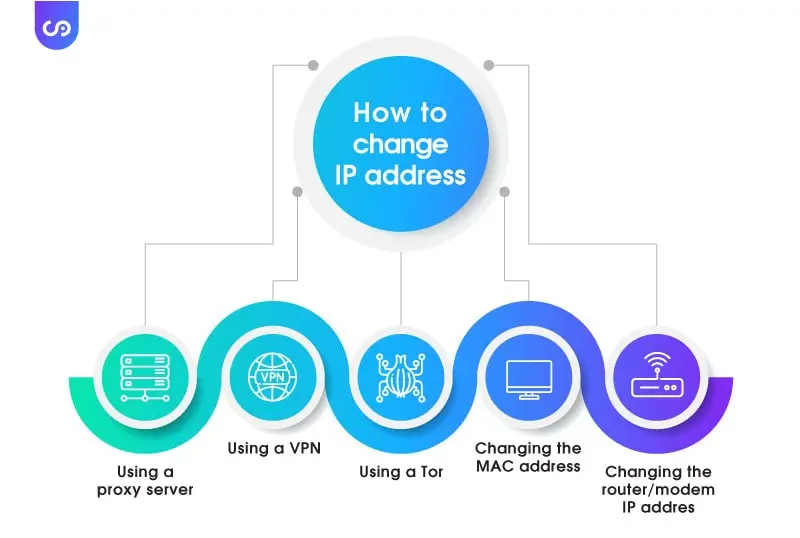
- Using Tor: Tor is a free and open-source software that allows you to browse the web anonymously. When you use Tor, your internet traffic is routed through a network of volunteer-run servers (nodes), and each node only knows the IP address of the previous and next nodes in the chain. This makes it very difficult for others to trace your online activities back to you. However, using Tor can be slow and may not work for accessing certain websites or services.
- Changing the MAC address: A MAC address is a unique identifier assigned to your device’s network interface. By changing your MAC address, you can trick your router or modem into assigning a new IP address to your device. This can be done using software or by manually changing the MAC address in your device’s network settings. However, changing the MAC address can be tricky and may not work for all devices or networks.
- Changing the router/modem IP address: If you have a router or modem, you can change its IP address to get a new IP address for all devices connected to the network. This can be done by accessing the router or modem’s settings and changing the IP address in the WAN or DHCP settings. However, changing the router/modem IP address can be complicated and may require some technical knowledge.
These are some of the most common methods for changing your IP address. By understanding how each method works and its pros and cons, you can choose the method that best fits your needs and preferences.
Residential proxies
Residential proxies are a type of proxy server that uses IP addresses assigned by Internet service providers (ISPs) to homeowners or businesses. Unlike data center proxies, which use IP addresses from data centers, residential proxies provide a more authentic and trustworthy online identity, as they are associated with real physical locations and real people.
For businesses and web scrapers, residential proxies offer several advantages. First, they allow you to access geographically-restricted content, as the IP address of the residential proxy is associated with a specific location. This can be useful for businesses that need to conduct market research, gather pricing data, or analyze customer behavior in different regions. With residential proxies, you can simulate a user’s location in a specific country or city and access content that would otherwise be unavailable.
Second, residential proxies can help you avoid detection and blockage by websites or services that try to detect and block proxy traffic. Since residential proxies use IP addresses assigned by ISPs, they appear more like regular internet users, making it harder for websites or services to detect and block them. This can be useful for web scraping and automation tasks, where getting detected or blocked can ruin your entire operation.
Third, residential proxies can help you protect your privacy and stay anonymous online. By using a residential proxy, you can mask your true location and identity, and prevent others from tracking or identifying you. This is especially important for businesses that deal with sensitive data or conduct market research, as they need to protect their online identity and avoid being detected by competitors.
However, residential proxies are not without their drawbacks. They tend to be more expensive than data center proxies, as they require more resources to maintain and manage. Moreover, they can be slower and less reliable, as they rely on the quality of the ISP’s network and infrastructure. Finally, finding a reputable residential proxy provider can be challenging, as there are many providers that offer low-quality or fraudulent services.
Overall, residential proxies offer a valuable solution for businesses and web scrapers who need to access geographically-restricted content, avoid detection and blockage, and protect their privacy and identity online. By understanding the pros and cons of residential proxies, and choosing a reputable provider, businesses and web scrapers can enhance their online operations and achieve their goals more efficiently and securely.
Conclusion
Changing your IP address is an essential skill for businesses and web scrapers who need to access geographically-restricted content, protect their privacy, and avoid detection and blockage. There are several methods to change your IP address, including using a VPN, a proxy server, or a Tor network. However, each method has its advantages and drawbacks, and choosing the right method depends on your specific needs and goals. Residential proxies, in particular, offer a reliable and authentic way to change your IP address, as they use IP addresses assigned by ISPs to homeowners or businesses. By understanding how to change your IP address and choosing the right method, you can enhance your online operations, protect your privacy, and achieve your goals more efficiently and securely.
FAQs
How can I change my IP address?
You can change your IP address by using a VPN, proxy server, or Tor network, depending on your specific needs and goals.
Why would I need to change my IP address?
You may need to change your IP address to access geographically-restricted content, protect your privacy, or avoid detection and blockage online.
Can I change my IP address manually?
Yes, you can change your IP address manually by configuring your network settings, but this may not be the most effective or secure method.
Are there any risks involved in changing my IP address?
There are some risks involved in changing your IP address, such as exposing your device to malware or phishing attacks, or violating the terms of service of certain websites or services.
Can I change my IP address using proxy servers?
Yes, you can change your IP address using proxy servers, including datacenter proxies and residential proxies, which offer different levels of authenticity, reliability, and security.

